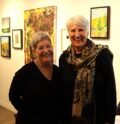Commentary
Food for free thinkers
October 5, 2021

By Nate Smelle
Since governments around the world began implementing public health measures to get the COVID-19 pandemic under control in the winter of 2020, there has been a loudening cry for “freedom” arising from the far-right.
Having grown so complacent with the “shop-til-you-drop” status quo that had become our custom prior to the pandemic, this confused cult has been ready and willing to drink the Kool-aid served up by a relatively small but dangerously ambitious clan of political opportunists eager to capitalize on their fear of obligatory societal change. Bearing in mind the persistence of those still feeling the need to protest lockdowns, masks, handwashing, vaccines, and other safety belt-like measures, it is clear that they value their “freedom” more than their home planet, racial equality, human rights, future generations, and even their health and the health of their family.
Asked by one of these individuals over the weekend why I have not been attending the weekly pro-death demonstrations, I was forced once again to confront my own interpretation of what I consider to be common sense. Searching for common ground, I figured that I would begin this exploration of the truth with a dictionary. Recalling the agreeable words, “Freedom over Fear” written in black marker on a homemade sign being carried by an individual at one of the recent anti-lockdown protests, I found my jumping off point for this investigation.
As someone who values the right to choose, I, like the man carrying the sign, see more worth in freedom than fear. So, why then do I not feel compelled to defend the “freedom” he was marching to protect? Could it be that he values the same interpretation of freedom as me, only more? Or, could it be that we have two completely different interpretations of freedom?
Though unaware of our current predicament, Danish philosopher Soren Kierkegaard appeared to have understood the dangers of speaking before thinking when he wrote, “People demand freedom of speech as a compensation for the freedom of thought which they seldom use.”
Nonetheless, checking in with Merriam-Webster for some assistance in answering my query, I discovered that freedom is most commonly defined as: the quality or state of being free, such as: the absence of necessity, coercion, or constraint in choice or action; liberation from slavery or restraint or from the power of another; the quality or state of being exempt, or released usually from something onerous.
By means of this definition, one who is free is able to act as one wishes and therefore “not under the control or in the power of another.” With this definition in mind, I ask: when in human history have we ever truly been free? Whether we like it or not, we have built a society that is based on our nature as communal animals. No matter what our occupation may be, everyone of us have willfully signed up to be a part of this system by buying into it with our time and taxes. Despite its many shortcomings, this socially-minded system delivers us with health care, education, roads and infrastructure, clean drinking water – unless you live on one of the 32 Indigenous communities still under a long-term drinking water advisory. In one way or another, each of us has something to contribute, because deep down we all know that Spock was right when he reminded Captain James T. Kirk that “The needs of the many outweigh the needs of the few, or the one.”
Unfortunately, the most selfish among us would still rather choose to deny this irrefutable truth than honour its’ wisdom.
Showing up at the office on Monday morning, ready to polish off this investigation, I scrolled through the emails in my inbox to find a disturbing change of plans.
Opening up a long-awaited response to a Freedom of Information request filed by Zoocheck months ago regarding the situation with Mark and Tammy Drysdale’s exotic animals in Hastings Highlands, I was horrified to learn that a rumour I had considered too outrageous to believe, was in fact true.
While there was too much information to go through in time to send the entire story to press by the end of the day, what I can tell you is that, according to the police reports, the lions, tigers, and lemurs on site were not being provided food or water on a regular basis. Even worse: this summer, they had been starved to the point where some of the lions dug holes into the tigers’ enclosure and ate one of the tigers.
Yes, you heard that correctly, one of the tigers were killed and eaten by the starving lions.
Tragically, this revolting crime could have been avoided if our provincial and municipal governments would have had the will to take away that corrupted bit of “freedom” in Ontario, which allows exotic animal owners to treat the animals they hold captive as cruelly as they choose.
To understand what it means to be free, I suggest we put ourselves in the lions perspective; better yet, the perspective of the tiger as it watched the lions eating it alive. If we are to fully understand our freedom, we must also take the time to understand the meaning of captivity.
True freedom does not allow us to take away the freedom of others to live happy, healthy, natural lives. It has nothing to do with being inconvenienced with regulations designed to protect our health and well-being.

















